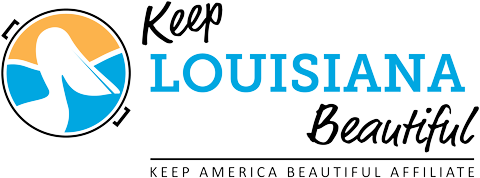Posted on Oct 13, 2023 | News,Press Releases
Keep Louisiana Beautiful’s 2023 Louisiana Litter Study Reveals Louisiana Taxpayers Pay $91.4 Million Annually for Litter Abatement
BATON ROUGE, La. – Keep Louisiana Beautiful (KLB) and the Office of the Lieutenant Governor released today the 2023 Louisiana Litter Study including the annual cost of litter abatement, roadside litter assessment statistics, and data on the public’s attitude toward litter.“This study is a result of the recommendations established by the Governor’s Task Force on Statewide Litter Abatement and Beautification,” said Lieutenant Governor Billy Nungesser. “The data reported provides us with a valuable baseline to help measure our progress as we work to clean up Louisiana. It also provides a foundation on which we can build a strategic plan for addressing Louisiana’s litter problem, which remains a top priority.”“Thanks to funding from the Louisiana State Legislature and the Office of the Lieutenant Governor, Keep Louisiana Beautiful oversaw the state’s first litter research performed in over a decade,” said KLB Executive Director Susan Russell. “We are grateful for the support of our state’s top leadership, which has led us to better understand the severity of our litter problem. The results of this study will help inform decision-making moving forward when it comes to litter.”Cost of LitterThe study reveals that Louisiana spends an estimated $91.4 million each year on litter abatement. This is a 65% expenditure increase since the 2010 KLB study. This number was calculated by measuring local government and state agency expenditures on litter prevention, education, remediation, and enforcement. This total does not include the expenditures of businesses, universities, or other entities; therefore, the actual cost is likely much higher. Some key findings from the cost of litter study include:
- Local jurisdictions combined bear over 80% of the costs of addressing litter.
- Local jurisdictions spend seven times more to remove litter and trash than on preventing it from being generated.
- Prevention and education account for only 10% of the estimated overall cost, but research shows that increased funding in these areas could lead to a reduction in littering behavior.
“Most entities do not have a budget line item for litter and illegal dumping expenditures, making it challenging to account for all the costs associated,” said Russell. “It is recommended that local government jurisdictions adopt a consistent expenditure tracking and reporting system to better account for and understand the obvious and hidden costs of litter.”Roadway LitterWorking with the Louisiana Department of Transportation and Development (LADOTD) and KLB, the project team selected 137 sites (Interstates, U.S. Roadways, and LA Roadways) within every parish and in all nine LADOTD districts to survey. Field crew members identified the litter category, specific items, and the packaging materials. Visible litter (4 inches or larger) was grouped into 10 categories, and micro litter (less than 4 inches) was grouped into 11, including tobacco. Research shows that there are approximately 143.8 million pieces of litter on Louisiana roadways. Interstates are the most littered type of roadway, with an average of 10,178 pieces of litter per mile. Some key findings from the roadway litter assessment include:
- Approximately 34.3% of visible litter were beverage containers.
- Approximately 49.3% of visible litter had plastic packaging material.
- The top visible litter item was plastic water bottles at 8.2%, followed by metal/aluminum beer cans at 8%.
- The top aggregate litter item (combination of micro and visible litter) was tobacco products at 24.5%.
- The top source of roadway litter was identified as motorists at 53.2%, followed by unsecured loads at 17%.
- The five most common brand names of roadway litter:
- Bud Light/Budweiser
- Busch
- Miller High Life
- Coca-Cola
- McDonald’s
“To reduce roadside litter, KLB encourages the enforcement of litter laws, more frequent litter removal, improved roadway maintenance, the expansion of adopt-a-road programs and youth litter education, and the expansion of KLB network through our community and university affiliate programs,” said Russell. “To reduce the spread of micro litter, litter removal must take place prior to mowing roadsides.”Public Attitude and BehaviorsAccording to a survey, 92% of Louisiana citizens believe that litter is a problem and 68% support more litter enforcement. However, one in ten respondents report they do not think enforcement would change littering behavior. Some key findings from the public perception of litter assessment include:
- Of respondents, 44.8% said their reason for not reporting littering is that they don’t want to get involved.
- Of respondents, 74% said littering takes place at outdoor events due to a lack of trash cans, trash cans not being close by, and trash cans overflowing. And 26 % believed it was someone else’s job to clean it up.
- Of respondents, 59% believe people who litter should be responsible for litter cleanup.
- Most Louisianans support a fee in the range of $.50 to $2 as designated funding for local cleanup and prevention.
- Littering is frequently observed – 44% reported that they witness littering behavior several times a month, 38% reported witnessing it weekly, 15% a few times a year, and 3% never.
The 2023 KLB Louisiana Litter Study was conducted by a project team led by Carson Consulting. The team consisted of Tetra Tech BAS, Steve Stein, and numerous individuals with an extensive history of conducting national, state, and local research studies.Read the full 2023 Louisiana Litter StudyKeep Louisiana Beautiful (KLB) is the state’s leading anti‐litter and community improvement non-profit organization focused on achieving a cleaner, greener Louisiana through education, enforcement, public awareness, and community engagement. KLB is affiliated with the national organization, Keep America Beautiful, and is supported by a robust statewide network of 43 Community Affiliates and 10 University Affiliates. Learn more at KeepLouisianaBeautiful.org.


